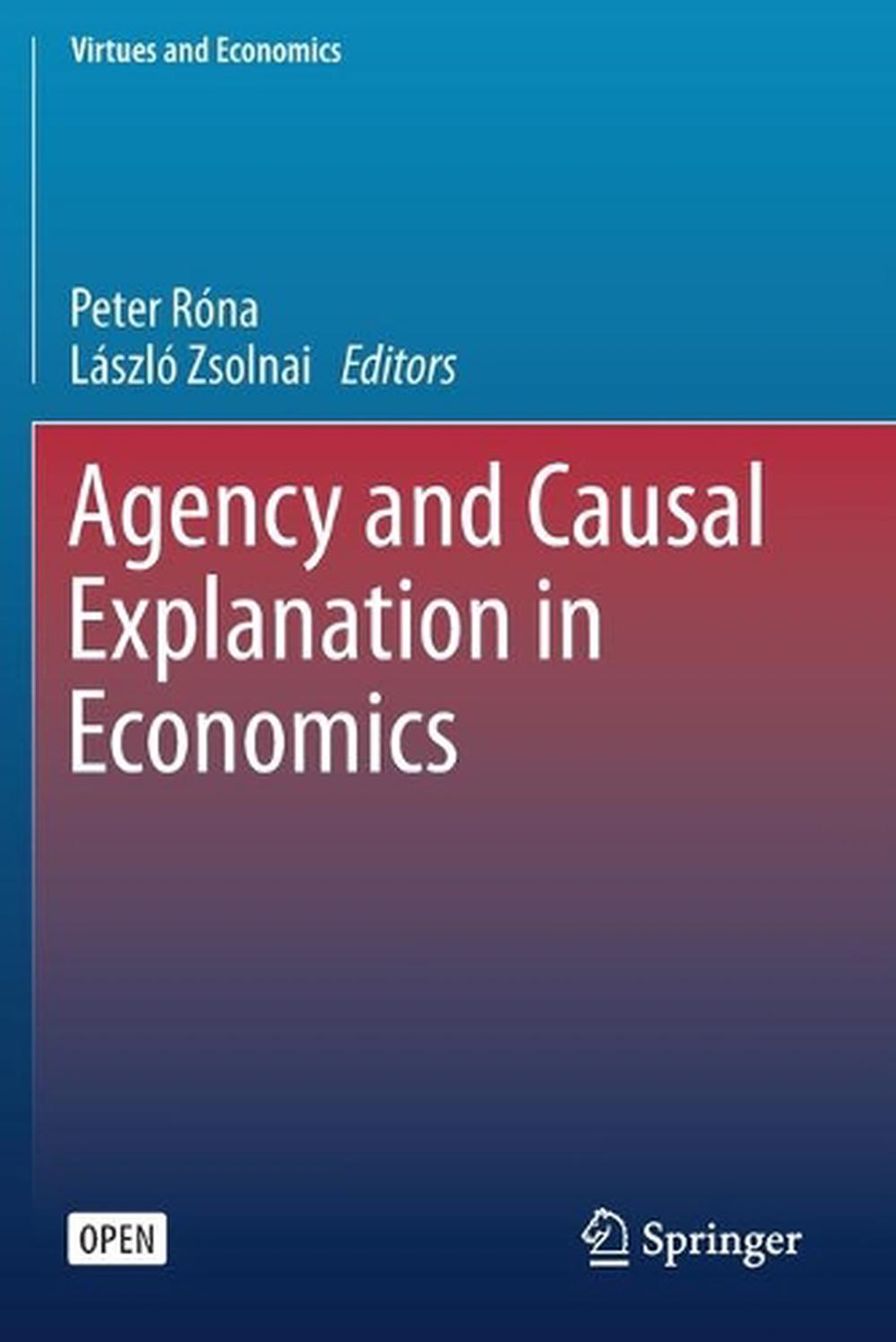
When you click on links to various merchants on this site and make a purchase, this can result in this site earning a commission. Affiliate programs and affiliations include, but are not limited to, the eBay Partner Network.
Agency and Causal Explanation in Economics by Peter R?na (English) Paperback Boo

- Item No : 146633386880
- Condition : Brand New
- Brand : No brand Info
- Seller : the_nile
- Current Bid : US $73.33
-
* Item Description
-
The Nile on eBay

Agency and Causal Explanation in Economics
by Peter Róna, László Zsolnai
This open access book provides an exploration of the consequences of the ontological differences between natural and social objects (sometimes described as objects of nature and objects of thought) in the workings of causal and agency relationships.
FORMAT
PaperbackLANGUAGE
EnglishCONDITION
Brand New
Publisher Description
This open access book provides an exploration of the consequences of the ontological differences between natural and social objects (sometimes described as objects of nature and objects of thought) in the workings of causal and agency relationships. One of its important and possibly original conclusions is that causal and agency relationships do not encompass all of the dependent relationships encountered in social life. The idea that social reality is contingent has been known (and largely undisputed) at least since Wittgenstein's "On Certainty", but social science, and most notably economics has continued to operate on the basis of causal and agency theories borrowed or adapted from the natural sciences. This volume contains essays that retain and justify the partial or qualified use of this approach and essays that totally reject any use of causal and agency theory built on determined facts (closed systems).The rejection is based on the possibly original claim that, whereas causation in the objects of the natural sciences reside in their properties, human action is a matter of intentionality. It engages with critical realist theory and re-examines the role of free will in theories of human action in general and economic theory in particular.
Back Cover
This open access book provides an exploration of the consequences of the ontological differences between natural and social objects (sometimes described as objects of nature and objects of thought) in the workings of causal and agency relationships. One of its important and possibly original conclusions is that causal and agency relationships do not encompass all of the dependent relationships encountered in social life. The idea that social reality is contingent has been known (and largely undisputed) at least since Wittgenstein's "On Certainty", but social science, and most notably economics has continued to operate on the basis of causal and agency theories borrowed or adapted from the natural sciences. This volume contains essays that retain and justify the partial or qualified use of this approach and essays that totally reject any use of causal and agency theory built on determined facts (closed systems).The rejection is based on the possibly original claim that, whereas causation in the objects of the natural sciences reside in their properties, human action is a matter of intentionality. It engages with critical realist theory and re-examines the role of free will in theories of human action in general and economic theory in particular.
Table of Contents
Preface.- Introduction.- Part I Theory.- Nadine Elzein: Free Will and Empirical Arguments for Epiphenomenalism.- Stephen Pratten: Causality, Agency and Change.- Jason Blakely: How Economics Becomes Ideology: The Uses and Abuses of Rational Choice Theory.- William Child: Economics, Agency, and Causal Explanation.- Part II Praxis.- Richard Conrad and Peter Hunter: Why Aquinas Would Agree That Human Economic Behaviour Is Largely Predictable.- Paul Clough: Agency, Time and Morality: An Argument from Social and Economic Anthropology.- Scott Meikle: The Switch from Agency to Causation in Marx.- Margaret S. Archer: Social Morphogenesis: Critical Realism's Explanatory Approach.- Jonathan Price: Grotius's Theological anthropology and modern contract doctrine.
Feature
Open Access publication Provides an exploration of the consequences of the ontological differences between natural and social objects Examines theories historically offered with respect to social causation and agency and proposes and defends some alternatives Stipulates the fundamental differences in causality in nature as compared to social life with particular regard to economics Examines the nature of causation and agency in social life
Details
ISBN3030261166Pages 171Year 2020ISBN-10 3030261166ISBN-13 9783030261160Publication Date 2020-09-11Language EnglishFormat PaperbackSeries Number 5UK Release Date 2020-09-11Place of Publication ChamCountry of Publication SwitzerlandIllustrations 2 Illustrations, black and white; XV, 171 p. 2 illus.Author László ZsolnaiPublisher Springer Nature Switzerland AGSeries Virtues and EconomicsImprint Springer Nature Switzerland AGAlternative 9783030261139Edited by László ZsolnaiDEWEY 111Audience Professional & VocationalEdition Description 2020 ed.Edition 2020th


-
- NO GRID Survival Projects
- $ 37.00
















